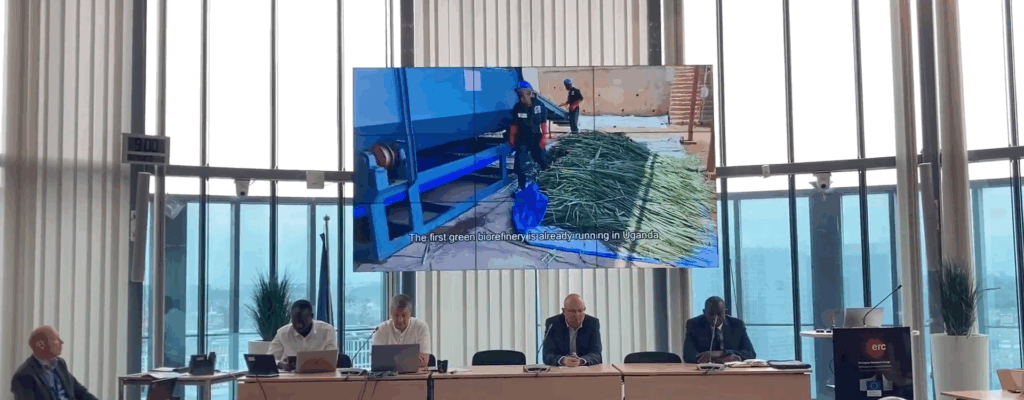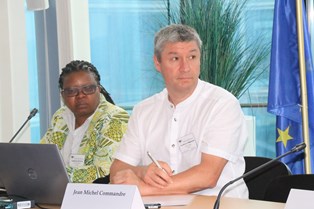The European project Bio4Africa, in which CTA is a member of the consortium, has come to an end after four years of work promoting bio-based solutions tailored to rural African contexts. The initiative has demonstrated the potential to transform agricultural waste into new sustainable sources of income, thereby fostering the economic resilience of smallholder farmers.

To mark the end of the project, a high-level policy roundtable was held in Brussels, attended by 28 delegates from African ministries, universities, the European Commission and the BIO4Africa consortium. During the meeting, participants discussed the main legislative challenges hindering the adoption of bio-based technologies in countries such as Côte d’Ivoire, Ghana, Senegal and Uganda.
The organisation AATF identified more than 40 policy gaps that limit the implementation of these innovative solutions. These challenges — along with corresponding recommendations — are detailed in four policy briefs developed by the project following a participatory process involving stakeholders from the public sector, academia, rural communities and the private sector.
“Beyond research, bio-based innovations must be scaled up in ways that deliver transformation. Cost is critical: the technologies must be affordable and sustainable in the long term,” stated Daniel Kyalo Willy, Senior Manager at AATF and Chair of the panel.

Among the issues discussed, urgent challenges such as demographic pressure, deforestation and youth unemployment were also highlighted. Participants agreed on the need to promote education and training, the responsible use of resources, and, in particular, the strengthening of public-private partnerships to enable technology transfer.
In this regard, Catherine Kilelu, Director of Communications and Partnerships at the African Centre for Technology Studies, stressed that bioeconomy should not only be a research agenda, but also an industrial one, with the direct involvement of the private sector.
During the event, the importance of the AU-EU Innovation Agenda was also underlined, as a strategic cooperation framework between the African Union and the European Union since 2023. Jens Hoegel, Head of International Cooperation at the European Commission, welcomed the project’s achievements:
“BIO4Africa is a great example of tangible results that policymakers and investors can build on.”
With these contributions, the BIO4Africa project concludes its journey by laying the foundations for future legislative reforms and national and regional bioeconomy strategies in Africa. The next step will be to update the policy briefs and develop a roadmap for regulatory change.

